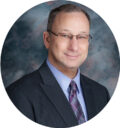 George Couros has written about Personal and Professional vs Private and Public and how these relate to students and teachers. I like Mr. Couros. I don’t always agree with him, but I think that he does a terrific job of raising conversations. He does this very professionally.
George Couros has written about Personal and Professional vs Private and Public and how these relate to students and teachers. I like Mr. Couros. I don’t always agree with him, but I think that he does a terrific job of raising conversations. He does this very professionally.
It is important to understand the definitions here. The “personal” is an account that is used with friends and family. The “professional” is the center around the professional work that you do. I have talked to many teachers about having these two accounts (and being very, very careful about which one that you are using). Mr. Couros argues for a different construct: private versus public.
What I am always aware of is that no matter who sees what I put out there, anyone can see it eventually, whether if it is through me or someone else.
- George Couros
Please note that he doesn’t disparage having different accounts. It is just not a methodology that he follows. He notes several examples of personal account postings that have had disastrous professional effects. There are many others, not necessarily related to education. Justine Sacco’s life was severely altered by a single tweet. Thus is it crucially important for users to understand that anything posted, even if posted on a “private” account, is still a public posting.
Here I completely and totally agree with Mr. Courcos. We need to help teachers and students understand that absolutely anything that is posted, no matter where, can be made public. Oh, and it can be made public forever. Just because it doesn’t become public right away doesn’t mean that it never will.
Where we diverge slightly is in choosing one or the other. I believe that is important for teachers to understand both debates. Everyone should know that conversations online are public. But, everyone should also understand that there are different audiences for messages. There is no need to unwittingly push the debate where it shouldn’t be pushed. Oh, and it is also important for users to understand what is public and what is private. Frequently, this becomes Facebook is private and Twitter is public. No. It is far more nuanced than that.
However, knowing the intended audience is an important skill and message that we need to teach and understand. There are many things that may be public knowledge, but that one doesn’t need to broadcast to the public. Teachers are in a tenuous place with this. They need to be wise about what they are posting and where. (See Mr. Couros post for some horrific examples.) There are many others in a similar situation. Police personnel, doctors, and elected officials need to be wise as well.
I’m really glad that Mr. Couros has continued this conversation. I hope that educators everywhere will read and discuss the article so that they can make informed choices.


Leave a Reply